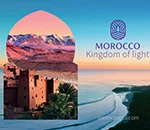
We've heard it before: Millennials value experiences over all, and nowhere is this more apparent than in how they travel. "Vacations" were what their "tourists" parents did. The new generation of travellers demand connections to their destination's unique culture, their people and their way of life in authentic, meaningful ways.
As PR and digital professionals, we've witnessed the seismic shift in consumer engagement and the expectations of that engagement. This has been largely driven by technology that has evolved more in the past 10 years than in recent history. Today's young travelers have been on the front lines of these changes, earlier adopters that are changing the travel landscape by embracing everything from DIY planning and booking to the "Uberization" economy. Their loyalty is up for grabs, and they've proven adept at filtering the noise to hone their perfect travel experience, fancy amenities be damned. They also share — a lot — and as digital natives, demand on-the-go connectivity to document their experiences throughout the course of their journeys.
Too often, we get caught up in telling only our clients' stories. In our roles as storytellers, however, we have an obligation to help travellers tell their stories — ideally, of course, through the lenses of the brands we represent. Here are three principles to help you and your clients get organized when considering how best to reach Millennial travellers.
Focus on the "can't get anywhere else"
Every destination and property has its something that sets it apart from the rest – a flavor, a sound, or a distinct energy. Millennial travellers are attuned to these differences and actively seek them out. These emotional cues provide the foundation for travel storytelling and ultimately the desire for even richer, deeper experiences.
It's imperative that travel brands find a way to tie themselves to this notion of uniqueness that carefully, creatively and authentically defines their role in bringing those somethings to life. Resist the urge to be iterative in your storytelling — no one wants a travel brochure. Rather set the stage for something more along the lines of a "choose your own adventure" book that highlights the distinctive storylines from which a traveller can choose. One way to accomplish this is by tapping local experts as ambassadors. Viceroy Snowmass created an innovative "Ski with the Chef" experience that paired guests with the resort chef (a Snowmass local) for a skiing and snowboarding tour of the mountain and an après-ski culinary course.
Embrace a culture of sharing
Catit, a restaurant in Tel Aviv, Israel, by Carmel Winery, offers a program called "Foodography" that pairs its high-end cuisine with photo-friendly plating — the plates are specially designed with built-in smartphone stands, while some even spin to set up spinning, 360-degree motion graphics. This is a fantastic example of a brand experimenting with the power of sharing and leveraging the habits of Millennials in a wholly creative way — quality-controlled, user-generated content.
Experience and sharing used to be separate stages of the travel lifecycle. Now they're intertwined. It's important to remember that real-time sharing by Millennial travelers will undoubtedly happen, with or without a brand's input or direction. They want their family and friends to see the story they're crafting as it's happening. Today, FOMO (a.k.a. fear of missing out) drives motivation to share as much as it inspires individuals to do something — it's the new WOM (word-of-mouth) in today's digital age, and one of the most effective forms of bottom-up marketing.
At Four Seasons Resort Whistler, we created a wilderness wellness experience that took "spa day" outside to a nearby remote hot springs for a day of massage, yoga and relaxation, providing guests with beautiful scenery and a uniquely shareable experience.
Value the whole journey
Just as Millennial travellers are invested in their journeys from beginning to end, so too should travel brands understand the importance of being there for them every step of the way. This means executing dynamic storytelling along with utilitarian support to make their experiences as tailored as possible.
It also means a new approach to online and social media engagement, one that allows you to appropriately scale your efforts to ensure you're meeting these travellers at all relevant touch-points. From itinerary planning and recommendations to post-travel engagement and updates, communicators are in a prime position to deliver on the promise of their travel brands, and create longstanding relationships with a consumer segment whose influence is growing by leaps and bounds. Here are some tips on how to do that:
Nurture your client's distinct voice
Find the right voice that reflects your brand's cultural proposition and serves to define who you want to be known as. Consider a voice-mapping exercise that highlights your brand personified: its character or persona; the tone it uses to communicate; the distinct language it uses to set itself apart; and its purpose within the larger conversation.
Test and learn
Don't be afraid to test organic and paid content and engagement opportunities across multiple channels but ultimately settle on those from which you're seeing the highest return — and ditch the rest (for now). True optimization is about scaling smart and maximizing your resources to hone your activity in the right places.
Listen and adapt
As you map your Millennial strategy, make a concerted effort to mine and listen for stories they're already telling, where they're being told throughout the social web, and how they're being shared with one another. Gociety took these principles to a new level by launching a social network specifically for outdoor enthusiasts, empowering conversation, online connectivity and offline experiences and gaining valuable insights into their consumer along the way. Social listening is a gold mine for how you can carve out your own chapters and contribute to the stories that are sure to inspire a generation of travelers.
Christine Turner is Founder and President of Turner Public Relations, a wholly owned subsidiary of Fahlgren Mortine. Jeff Maldonado is Turner PR’s Vice President of Digital Communications.


 Weber Shandwick is providing PR and marketing communications services to the Moroccan National Tourist Office in New York.
Weber Shandwick is providing PR and marketing communications services to the Moroccan National Tourist Office in New York. Finn Partners has filed its six-month contract with the Bahamas Ministry of Tourism, Investments & Aviation, which is worth $240K.
Finn Partners has filed its six-month contract with the Bahamas Ministry of Tourism, Investments & Aviation, which is worth $240K. Weber Shandwick wrapped up its work for the Ministry of Bahamas at the end of 2023.
Weber Shandwick wrapped up its work for the Ministry of Bahamas at the end of 2023. The Aruba Tourism Authority is boosting its budget 29.4 percent to $2.2M at Zeno Group, according to its 2024 contract, effective Jan. 1.
The Aruba Tourism Authority is boosting its budget 29.4 percent to $2.2M at Zeno Group, according to its 2024 contract, effective Jan. 1. As inflation continues to impact spending, consumers are revisiting their list of what they’re willing to spend more of their money on. Luckily for those in the travel industry, experiences seem to be trending up on the “splurge” list.
As inflation continues to impact spending, consumers are revisiting their list of what they’re willing to spend more of their money on. Luckily for those in the travel industry, experiences seem to be trending up on the “splurge” list. 


 Have a comment? Send it to
Have a comment? Send it to 
No comments have been submitted for this story yet.